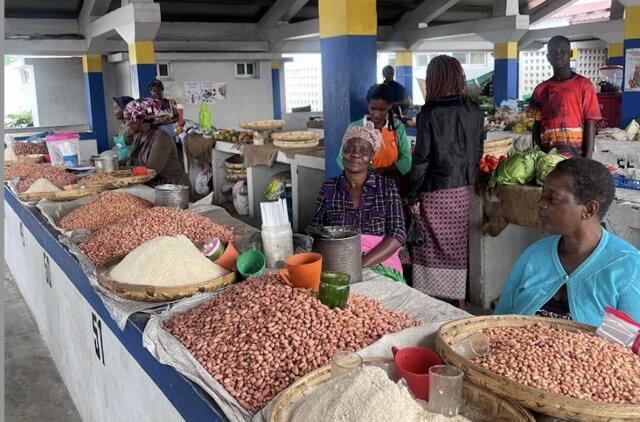Connecting Wholesale Fresh Food Markets and Urban Food Policy for Sustainable Development
28 March 2025

In November 2024, the ’Wholesale Markets – Public Spaces for Interconnected Food Policies’ report was published online. Developed by the Milan Urban Food Policy Pact (MUFPP) in conjunction with the World Union of Wholesale Markets (WUWM) this report brings together the urban food systems agenda and role of wholesale markets. The MUFPP is a global commitment of mayors from more than 250 cities around the world that promotes food as a focus to connect multiple agendas for sustainable development of cities. It provides a framework and systemic approach to understanding and engaging in food systems transformation through innovative food policies and a platform for knowledge exchange and collaboration. WUWM represents 217 members and is active in more than 42 countries across 5 continents. This global umbrella organisation, unites members around a shared goal of innovative, enhanced and efficient access to ‘high-quality, healthy diets through a well-organized, safe and sustainable food system’.
Wholesale markets are key fresh food aggregation and distribution nodes in the food system, offering a diversity of food through-out the year and providing essential public and strategic infrastructure. They are places where food safety and hygiene quality standards are targeted and connect large and small-scale farmers with retailers and consumers. These markets support regional economies and have a role to play in efforts to reduce environmental impact. Wholesale Markets, like retail markets are key entry points offering multiple levers for food systems transformation and opportunities to progress towards several of the Sustainable Development Goals (SDGs). The importance of wholesale markets has grown in recent years as a result of globalization. With urbanization many wholesale markets have shifted from city centres to areas with ready access to efficient transportation thus enabling handling of larger volumes of goods.
This report provides recommendations around the integration of wholesale markets into urban food policies using the MUFPP framework for sustainable and resilient food systems transformation. Actions, indicators and SDGs are unpacked and opportunities to connect with other food policy areas such as governance structures, sustainable diets, food production, supply and distribution, logistics, food waste and social and economic equity, are presented. Several case studies are used to illustrate these connections.
Overall, the report makes the case that while wholesale markets play a vital role in the food supply chain, they are often overlooked in broader food policy discussions. Policy makers are encouraged to prioritize the modernization and sustainability of wholesale markets in order to promote a more resilient, efficient and sustainable food system. Recognizing wholesale markets as a central component of food policy, is viewed as key to realising more resilient, efficient and equitable supply chain that benefits both producers and consumers.